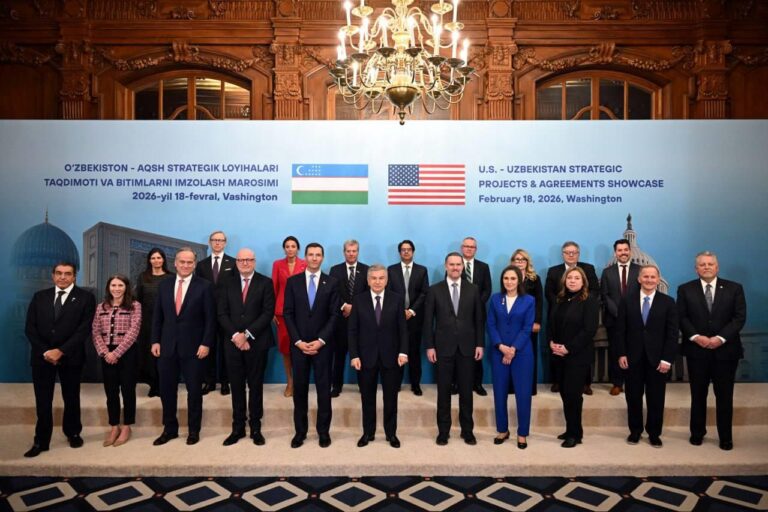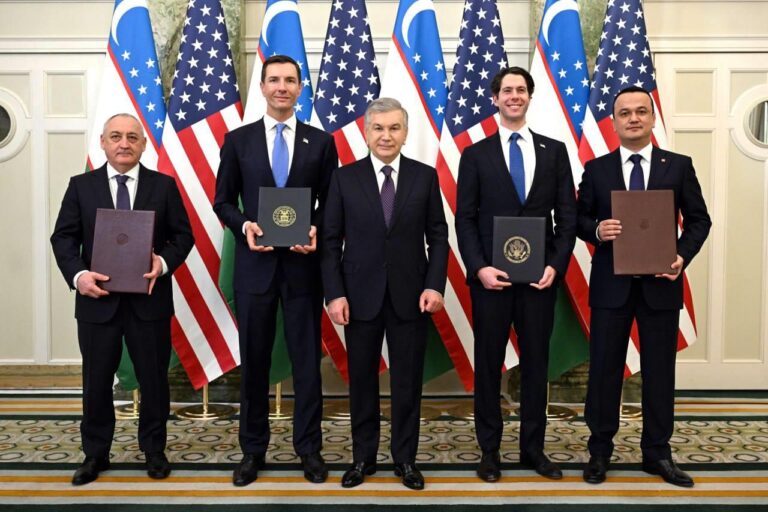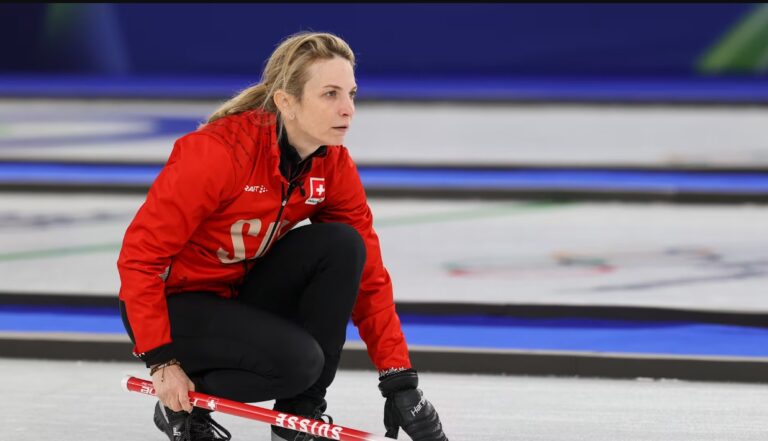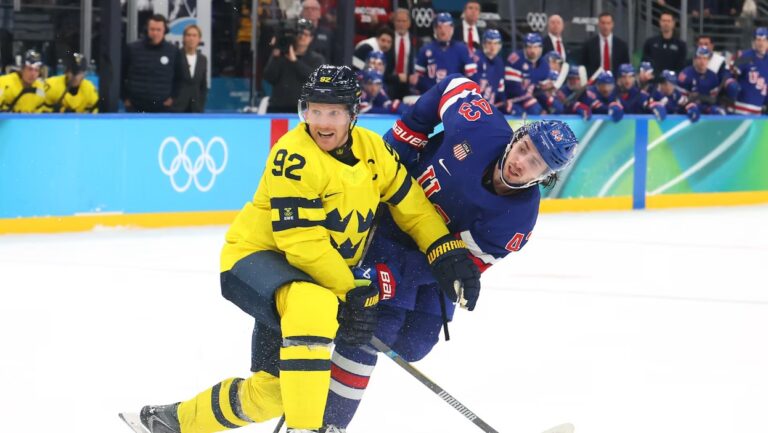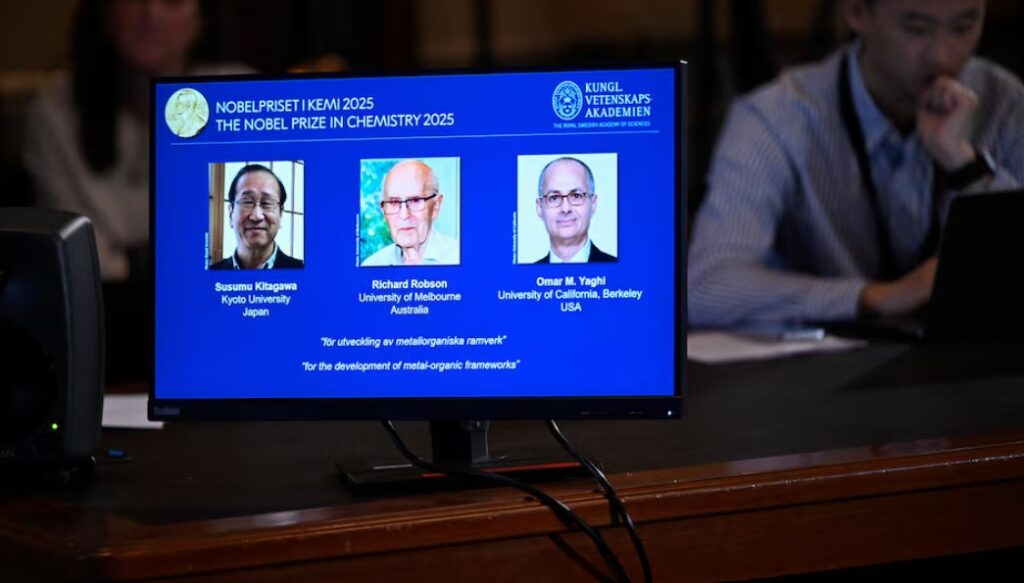
Scientists Susumu Kitagawa, Richard Robson and Omar M. Yaghi have been awarded the 2025 Nobel Prize in Chemistry for developing revolutionary materials known as metal-organic frameworks (MOFs) — molecular structures capable of storing vast amounts of gases and other substances in tiny spaces.
The Nobel Committee described these materials as having «unheard-of properties,» noting that a single sugar cube-sized piece could have the surface area of an entire football field. «It’s almost like Hermione’s handbag in Harry Potter — small in size but capable of holding enormous quantities,» said committee member Olof Ramstrom.
Their invention has major potential applications, from capturing carbon dioxide and purifying water to removing toxic «forever chemicals» (PFAS). MOFs are already being used in cement manufacturing to capture emissions before they reach the atmosphere.
Laureate Omar Yaghi, a Jordanian-American scientist born to Palestinian refugees, called science «the greatest equalising force in the world.» Kitagawa, of Kyoto University, and Robson, of the University of Melbourne, shared the 11 million Swedish kronor ($1.2 mln) prize with him.
This year’s chemistry award follows the Nobel Prizes in medicine and physics, with the literature prize set to be announced next.


